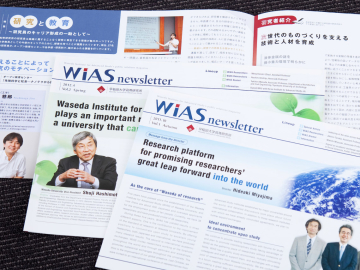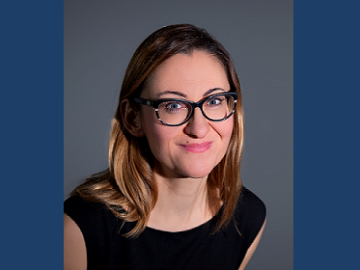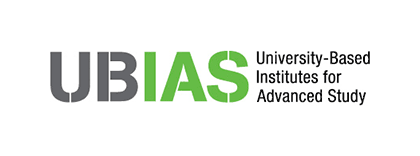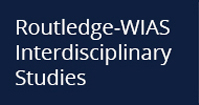Researchers
We welcomed 9 researchers in April 2022.
ANDASSOVA, Maral
As well as Kojiki and Nihonshoki, Fudoki is one of the ancient monuments of the 8th century’s Japanese writing. Izumo Fudoki is known for being compiled not by the representative of the central government, but by the ruler of Izumo province. That’s why it takes a special place among these chronicles. This study analyses Izumo Fudoki as a text, which was based on the unique traditions of Izumo province and simultaneously maintained united religious space with the imperial house of Yamato.
EDWARDS JR, Donald Brent
Dr. Edwards’ work focuses on (a) the global governance of education and (b) education policy, politics and political economy, with a focus on low-income countries. Geographically, these areas of focus have led to research primarily in Latin America (Mexico, Colombia, El Salvador, Honduras, Dominican Republic), Southeast Asia (Cambodia, Indonesia, the Philippines), and Africa (Kenya, Namibia, Zambia).
KUWABARA, Natsuko
There is no canonical evidence for the Virgin Mary’s Last Days on earth and her Assumption, but these themes have always been generally accepted, and these subjects repeatedly represented in a large number of artworks across the Mediterranean from the ninth century to the end of the fifteenth century. My research aims to clarify the genesis and development of the theme’s iconography through the study of 63 Apocrypha which account for the Virgin’s Last Days, and aims to understand how it functioned in the wider Mediterranean context.
NISHIDA, Nao
I aim to understand extracellular vesicle (EV) transfer dynamics in tumors in a tissue context. EVs, nanosized lipid bilayer vesicles, mediates cancer-normal cell interactions to establish a tumor-favorable environment, promoting cancer progression and metastasis. I will track the EV transfer of cancer to normal cells in real-time in tissue culture models. My studies will provide quantitative and spatiotemporal understandings of EV transfer that explain pro-tumoral activities of cancer-derived EVs.
FAHEY, Robert Andrew
Events like the January 2021 riot at the U.S. Capitol and the refusal of COVID-19 vaccinations by some groups have placed a strong focus on the role of conspiracy theory beliefs in political behaviour, reaffirming that in certain contexts these beliefs are not just eccentric – they are dangerous and harmful. Having worked in the media for many years before becoming a researcher, I am interested in how these ideas are spread and propagated, and how other factors like polarisation and populism play a role in further radicalising believers.
MORRIS, James Harry
I am interested in global East Asian history and particularly international religious exchange. As such, my research has primarily focused on the history of Christianity in Japan and China, and interfaith relations in East Asia. I am also conducting research on New Religious Movements and mine history in Japan. At WIAS, I will be building on my extensive research into the history Christian-Muslim relations in China and Japan, which has previously been funded by the Japan Society for the Promotion of Science (Grant Number: 20K12812), with a monograph sized project focusing on Christian-Muslim relations in China and Japan between 1800 and 1945.
https://www.waseda.jp/inst/wias/other-en/2022/04/01/9024/
YAMAGUCHI, Aya
I have been conducting research on elderly people’s access to justice. Based on the research results, I suggest that providing support from a younger age may be effective in improving access to justice. Therefore, in this study, I aim to explore middle-aged and old adults’ preparatory actions for legal challenges in old age. Furthermore, I identify how legal professionals provide support to meet such needs.
YAMADA, Yusuke
The birth of our universe is one of the biggest problems in physics, and we need both the theory of general relativity, which describes the evolution of spacetime, as well as quantum mechanics (quantum field theory), which describes microscopic physics. The purpose of my research is to establish a systematic method to describe quantum field theory in strong gravitational backgrounds, and to improve the description of the early universe.
ROMMESWINKEL, Hendrik
I am an economic theorist working in decision theory, freedom of choice, and game theory. I enjoy incorporating ideas from other subjects such as philosophy or information theory into my research. Recently, I focus on decision making when agents are interested in obtaining knowledge about the state of the world. In such situations, a rational decision maker may deviate from expected utility maximization to incorporate a value of information into the decision criterion.
Introduction of our activities
1. Introduction of research activities by Assoc. Prof. Yuko Okamoto
The “Top runners lecture collections: International symposium on autism spectrum disorder” was held as planned by the researchers at this institute on February 27, 2022. The following is a report on the symposium by the organizer, Assoc. Prof. Okamoto.
This symposium was planned as a part of initiatives by the international consortium called the U21 Autism Research Network, which was established in 2020 by an autism spectrum disorder research team of members from seven countries. The symposium was held with support from Waseda Institute for Advanced Study (WIAS), the Top Global University Project: Waseda Goes Global, and the Advanced Research Center for Human Science.
When planning this symposium, I and the other organizers gave ample thought to considering autism spectrum disorder from various viewpoints, and wanted the symposium to serve as an opportunity to think about what society needs for people on the spectrum to live in communities without difficulty. We invited several researchers from the University of Birmingham (UK), a member school of the aforementioned consortium, and from Japan we asked researchers, doctors, psychologists, people on the autism spectrum and others who possess a variety of perspectives to speak. Given that it was an event based on the theme of inclusion, we provided simultaneous interpretation to make participation easy in order to entice even more people to join and succeeded in gaining participation from a variety of professionals other than researchers.
On the day of the symposium, there were two lectures and three panel discussions. The first lecture was given by Dr. Tatsuya Koeda, assistant director of the National Center for Child Health and Development, who spoke about medical services for neurodevelopmental disorders in Japan. He noted that in the past what was desired of development-related medical services was support for social and behavioral difficulties. As school teachers learn how to support these difficulties, today, that is moving toward support for “systems that enable learning in school classrooms.” In the subsequent first panel discussion and second lecture, a discussion was held from the micro perspective in psychology and neuroscience of ‘human cognition’ originating with the individual. In the panel discussion, Dr. Makoto Wada, chief of the Developmental Disorders Section at the National Rehabilitation Center for Persons with Disabilities, Assoc. Prof. Ryo Kitada from Kobe University, and Waseda University graduate student, Yuto Kurihara engaged in a discussion on how sensory-motor contributes to social life, including communication. In the educational lecture by Senior Research Fellow Jennifer L. Cook from the University of Birmingham, she stated that one’s own emotion recognition and similarity of movements are behind the difficulty of reading other people’s emotions and intentions. At a later date, we received comments from family members of persons on the autism spectrum which reaffirmed that disparities in how different individuals feel are linked with the difficulty people who help have of understanding persons on the spectrum, and that research that makes the imperceptible senses of others perceptible through scientific means leads to support from the viewpoint of those on the spectrum. The second panel discussion shifted to the macro perspective of society and a dialogue was held on mental health, international comparisons of camouflage behavior, and shifts in family structures by Prof. Fumiyo Oshima, a clinical psychologist and certified public psychologist from Chiba University, Waseda University graduate student, Siqing Guan, Prof. Hitoshi Takenaka from Waseda University who specializes in sociology, and Dr. Sophie Sowden from the University of Birmingham who is the director of the international consortium. The knowledge that camouflage behavior, which hides characteristics to adapt to surroundings, impacts mental health differently in the UK and Japan indicated the necessity of a broader understanding of the social nature of persons on the autism spectrum being more than simply a two-person interaction between an individual and another person. Finally, in the third panel discussion Naoki Takada, a graduate of Waseda University and an individual on the spectrum, Naoto Muranaka, a joint representative of the Children and Youth Support & rearing Association that is involved in supporting persons on the spectrum, and Research Fellow Bianca Schuster from Waseda University talked about the meaning of “understanding autism spectrum disorder” through their own experiences. The discussion pointed out that research to date has focused on persons without intellectual disabilities and there is the possibility that much of the research has centered on the weaker aspects of people on the spectrum, which suggests the necessity of research with a broader field of view.
After the symposium, we also received comments from the speakers that participating in the event was a valuable opportunity for them to rethink research and clinical practice. The phrase, ‘interdisciplinary research’ conjures an image of integrating existing research fields and technologies to produce new technology and knowledge. However, I believe this event showed the significance of collaborating with other fields to understand the limits of conducting research on one’s own field alone by having assistance with other fields to approach a single issue from multifaceted and comprehensive perspectives.
This event was held at Ono Auditorium on Waseda University campus. We took measures to prevent the spread of infection and opened the event to the public, as well as streamed it online in real time. A total of 167 people participated. Archive video of the symposium has been uploaded to the official WIAS YouTube channel with Japanese subtitles for the English. Please take a look.
Part1
https://www.youtube.com/watch?v=pW-kPvTvEcw&t=3242s
Part2
https://www.youtube.com/watch?v=cVU_Upoxtdc&t=10722s
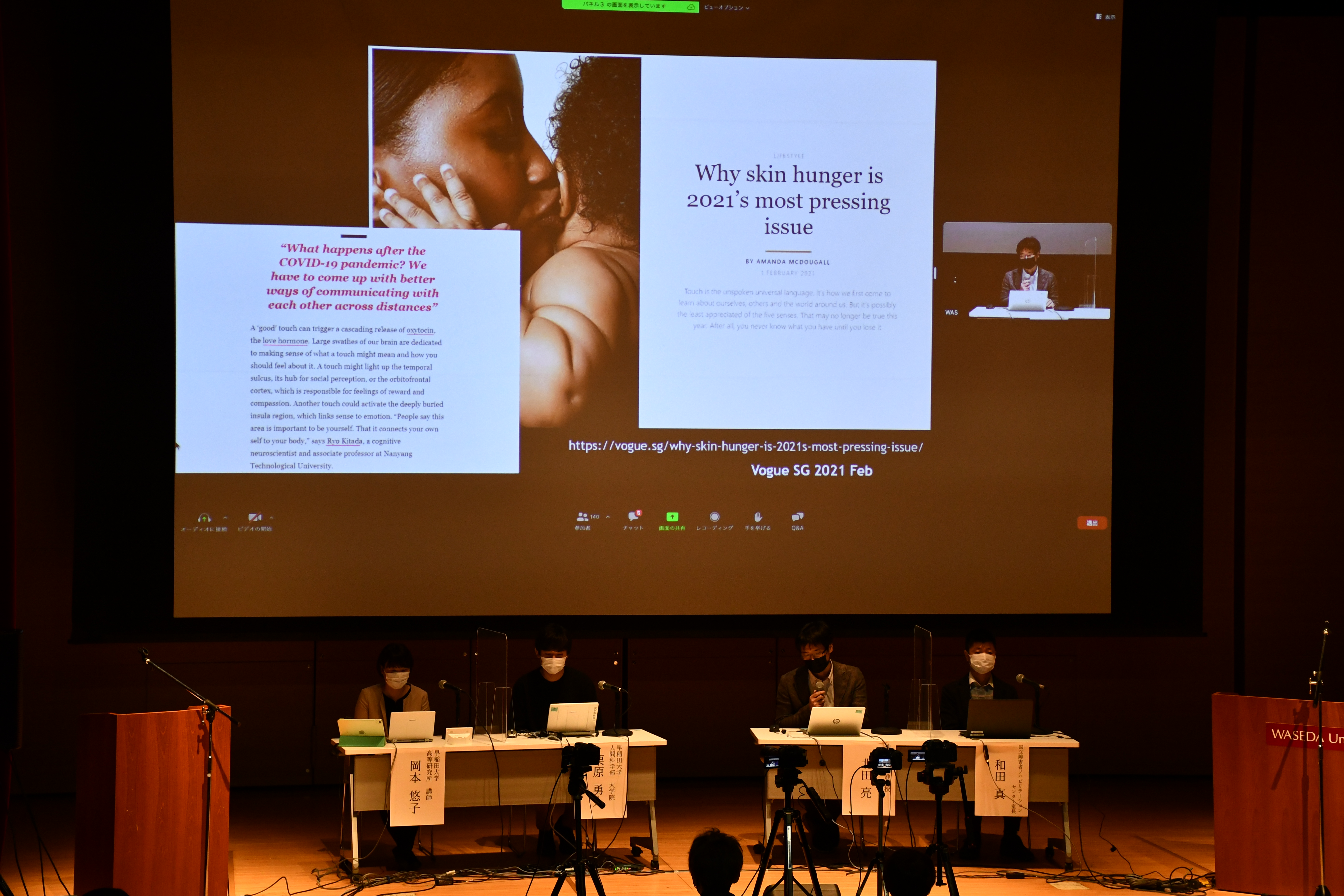
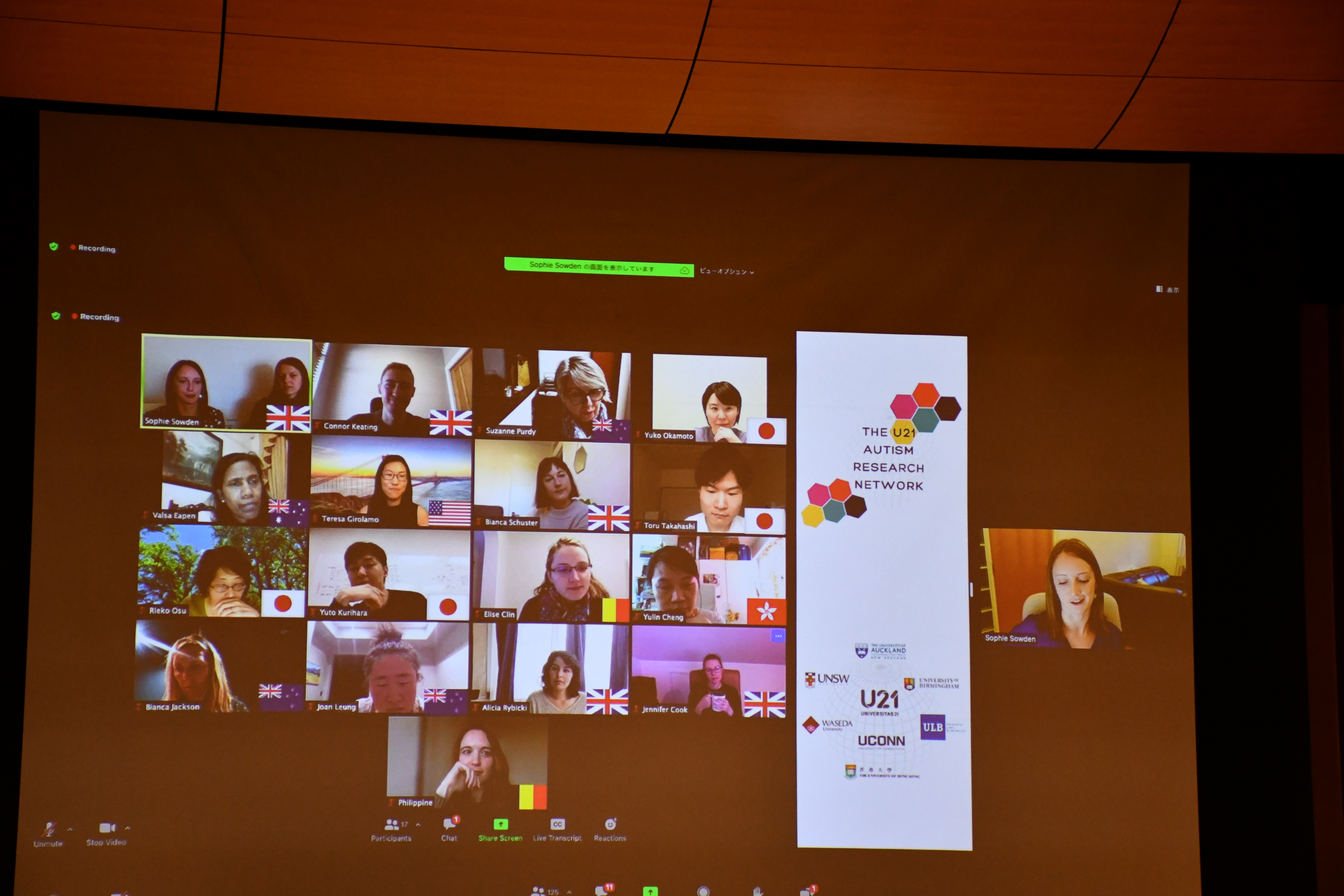
2. Holding a joint session on the theme of “anthropocene” with the University of Konstanz Institute for Advanced Study in Germany (May 31, 2022)
On May 31, 2022, a joint session was held online with the Institute for Advanced Study at the University of Konstanz, Zukunftskolleg (ZUKO), which is a cooperation partner with Waseda Institute for Advanced Study (WIAS).
The University of Konstanz was selected for the “German Excellence Initiative” project, a German government entity that supports strengthening university education and research abilities and improving global recognition. ZUKO plays the key role of promoting research at the University of Konstanz.
Both WIAS and ZUKO belong to the University-Based Institute for Advanced Study (UBIAS), a worldwide network of institutes for advanced study. Exchange between the institutes began after meeting at an international UBIAS conference and a cooperative relationship has been built that includes the ZUKO program director visiting Waseda University in 2019, and ZUKO researchers participating in an international workshop organized by WIAS that same year.
Since 2020, through the visiting scholars system, a short-term WIAS program for foreign researchers, ZUKO researchers have been planning to stay at Waseda University as a part of researcher exchange. However, plans have been postponed due to the COVID-19 pandemic.
Amid restricted face-to-face interaction, many discussions have taken place at both institutes with an eye toward launching more substantial joint international research projects. As a first step, the decision was made to hold a joint session to serve as a chance for research collaboration utilizing the expertise of researchers on both sides.
This joint session was set as an event to kick off collaborative projects between WIAS and ZUKO. The theme of ‘anthropocene’ (from the interdisciplinary perspective) was selected to enable crossover discussions centering on the humanities and social sciences so that the session would be an opportunity to get to know researchers from both institutes and explore common research interest.
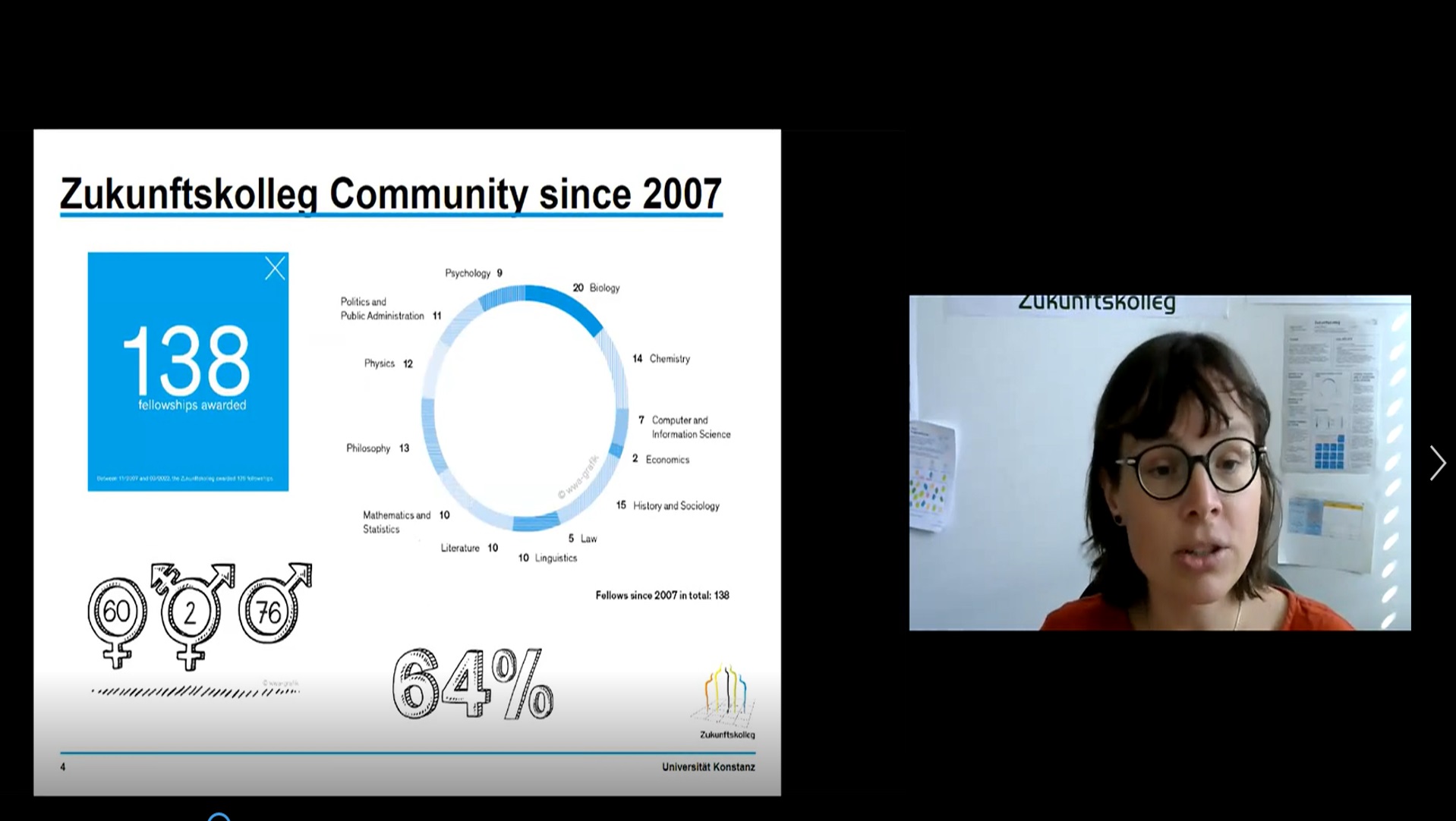
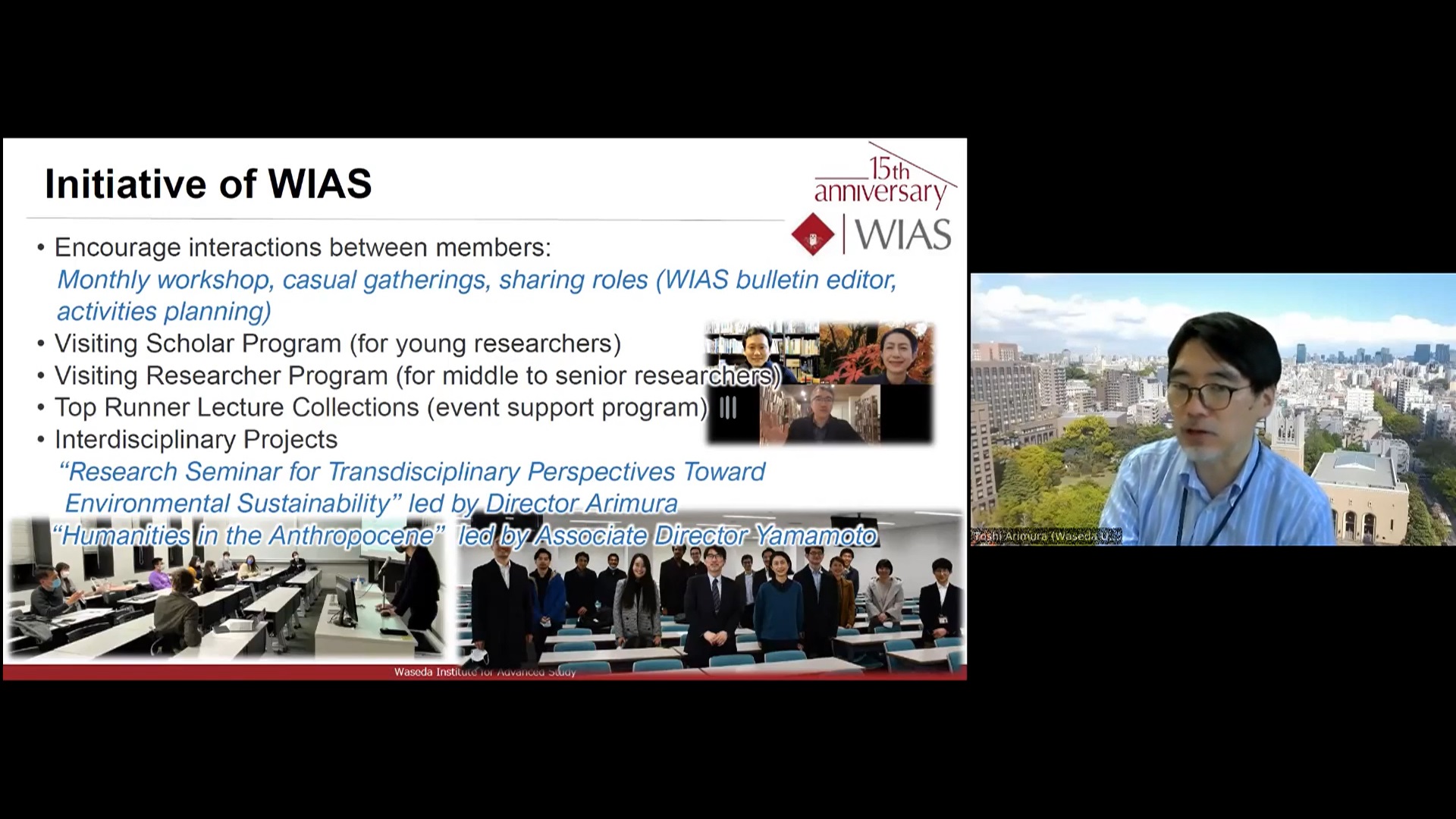
On the day of the joint session, a roundtable format was incorporated to encourage researchers to hold discussions with one another from diverse perspectives. First, four researchers introduced anthropocene topics from the perspective of their own area of specialization. Since it was held online, during the discussion section breakout rooms were established for each researcher’s topic to facilitate easy exchange of opinions by researchers from both institutes. When a WIAS researcher provided the topic, a ZUKO researcher became the moderator, and conversely, when a ZUKO researcher provided the topic, a WIAS researcher became the moderator. Considerable thought was put into the program to promote interactive communication.
On the WIAS side, Assist. Prof. Udith Dematagoda introduced the topic of “ideology and aesthetics,” and Assist. Prof. Susumu Annaka introduced “political systems and COVID-19 deaths.” On the ZUKO side, Prof. Alexander Etkind, a senior fellow specializing in cultural history, introduced the topic of “reduced environmental load due to remote work caused by COVID-19,” while Postdoctoral Fellow Eduardo Luersen spoke about the impact of technofossils brought by the rise of information technology and media.
The subsequent breakout-room discussions started with topics in the areas of specialization and became broad exchanges of opinions that crossed over fields. The participants were very satisfied since they were free to join rooms that they were interested in and carry out lively discussions in small groups.
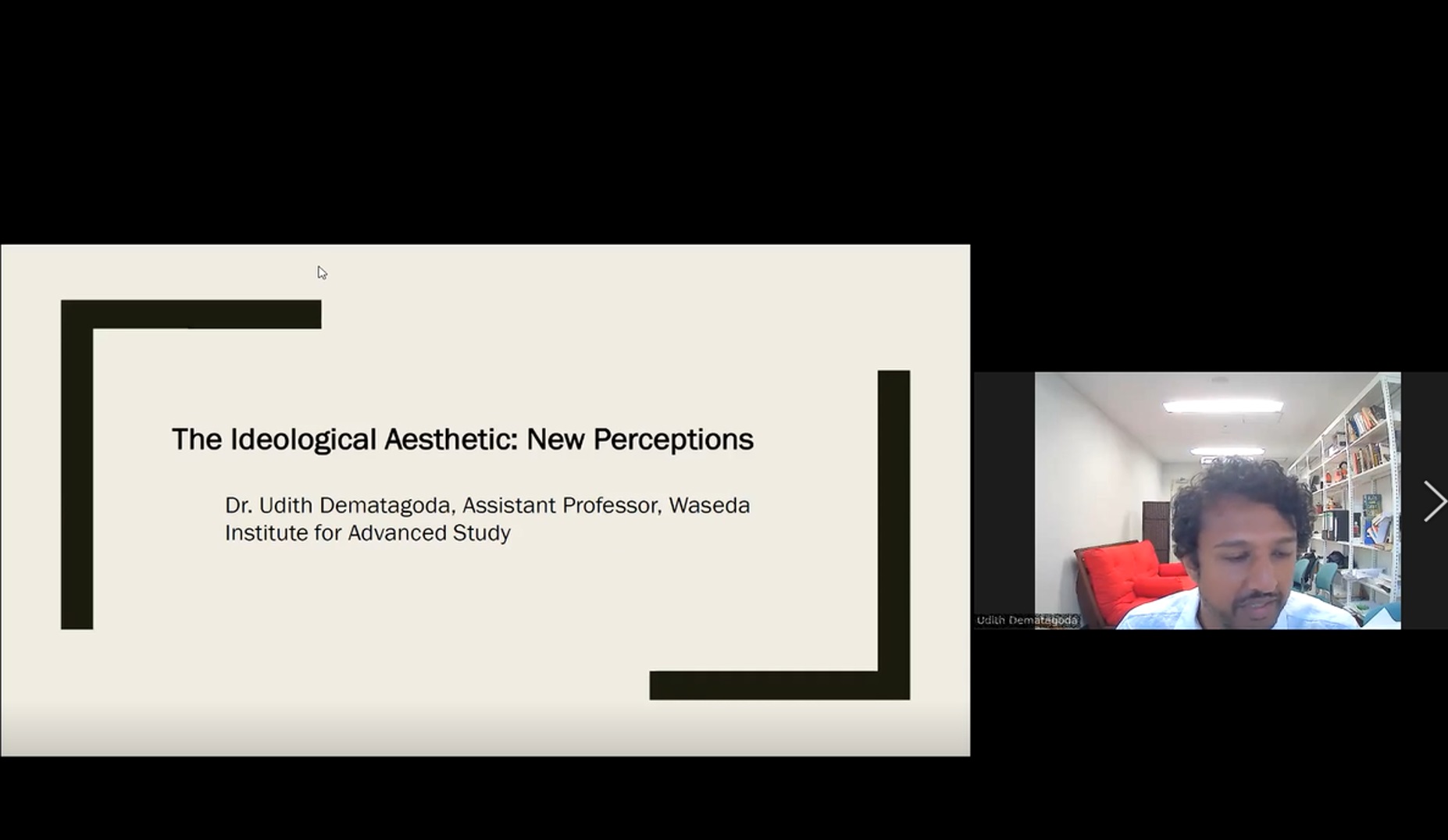
Though there was an accident that ZUKO had to wait for an hour to start the session for a change in time difference due to daylight saving time, we believe it was an event made possible precisely because it was a remote session. For example, Director Giovanni Galizia from ZUKO provided remarks from Southern Spain where he was doing fieldwork. Director Toshi H. Arimura from WIAS shared the appeal of Waseda University and Tokyo with the ZUKO researchers who were far away and encouraged them to visit in the future. From start to finish, the event was an amicable affair.
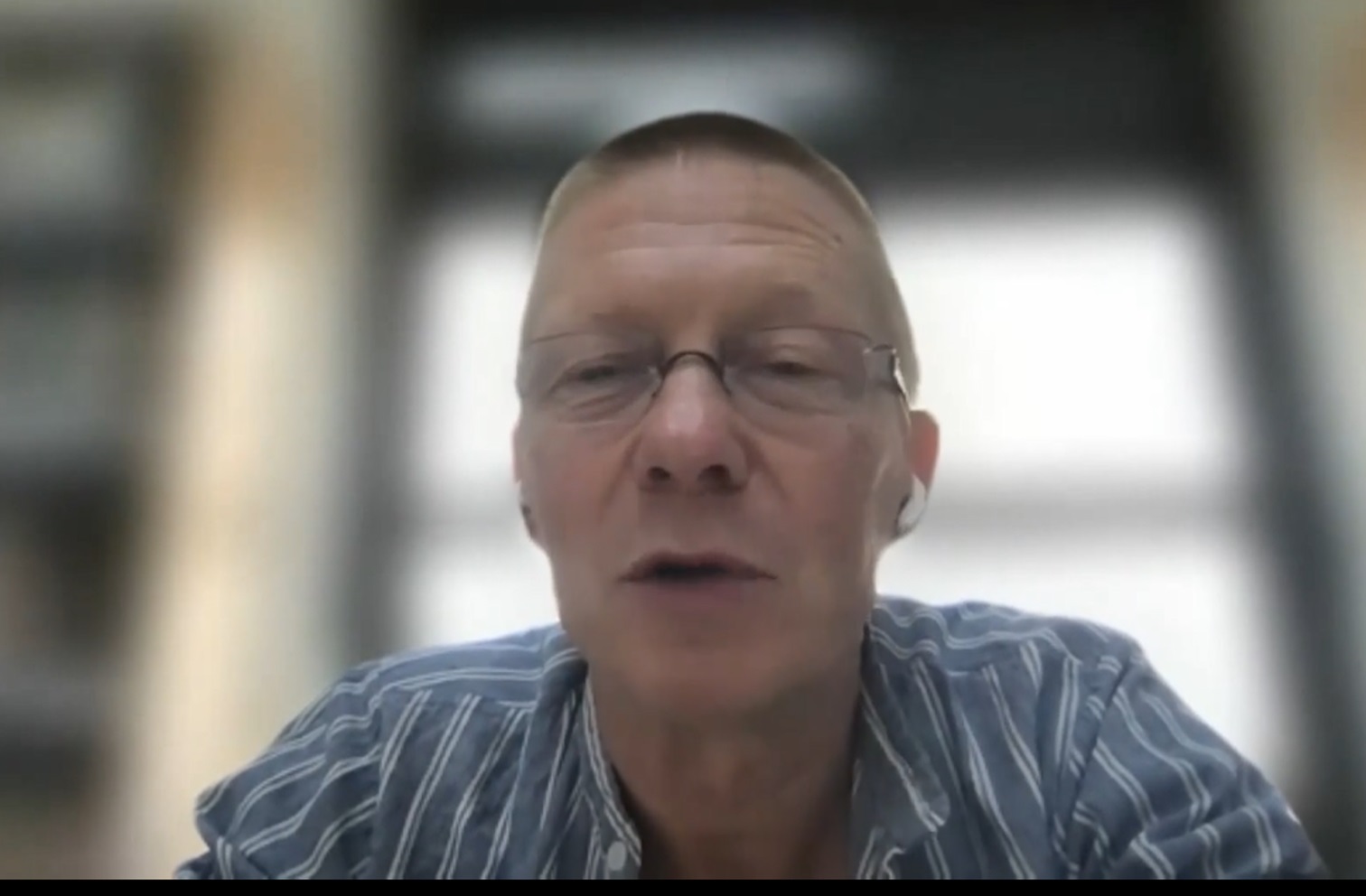
This fall, two ZUKO researchers whose visit has been on hold since 2020 are scheduled to come to Waseda University as visiting scholars and are expected to carry out a joint research with WIAS members. In addition, there are plans to cooperate with ZUKO on an event celebrating the 15th anniversary of WIAS that is currently being developed. Further collaboration between the institutes is anticipated in the future.
Information
WIAS invites outstanding overseas researchers who are active internationally, and contributes to the energizing of research activities at Waseda University through academic exchanges and seminars between our researchers and the invitees. Click here for more information.
Visiting Researchers
- June 25, 2022 – July 25, 2022
POSTOUTENKO, Kirill
Senior Researcher, Bielefeld University (Germany) - June 27, 2022 – July 27, 2022
THOMSEN, Hans Bjarne
Professor, University of Zurich (Switzerland) - July 6 – August 5, 2022
TARUI, Nori
Professor, University of Hawaii at Manoa (USA) - July 17 – August 16, 2022
KATO, Takao
W.S. Schupf Professor, Colgate University (USA)
Visiting Scholar
- July 4, 2022 – August 3, 2022
ADHIKARI, Monalisa
Lecturer, Keele University (UK)
We welcome your comments and suggestions. Please contact us at the coordinates below.
Waseda Institute for Advanced Study (WIAS)
1st floor, Nishi-Waseda Bldg.
1-21-1 Nishi Waseda, Shinjuku-ku, Tokyo 169-0051, JAPAN
URL:https://www.waseda.jp/inst/wias/en/
TEL:03-5286-2460
FAX:03-5286-2470
E-mail:[email protected]

